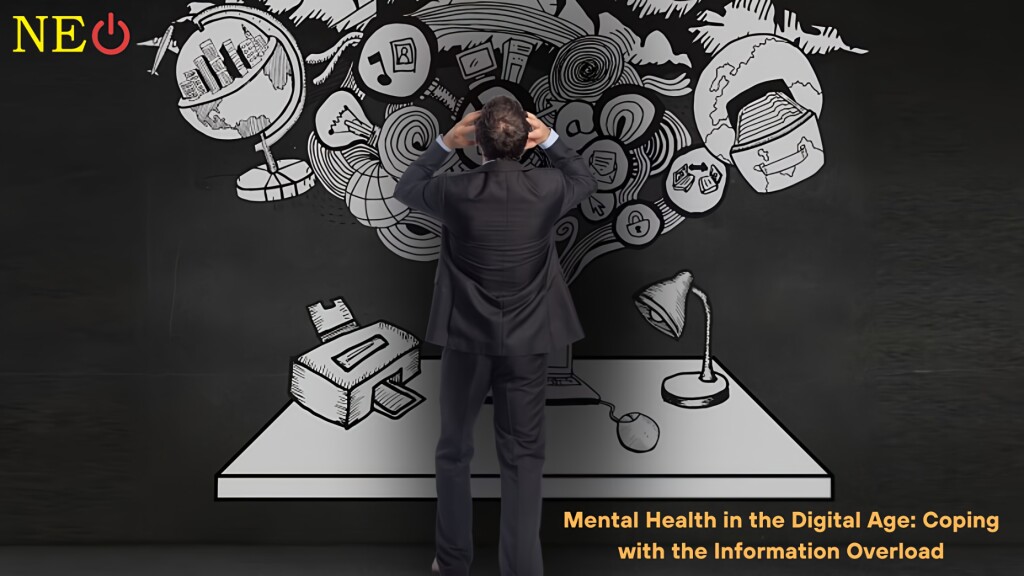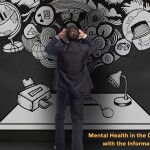In our hyperconnected world, the constant barrage of information can be overwhelming. From social media updates to news alerts, emails, and messages, our brains are bombarded with stimuli from all directions. While the digital age has brought remarkable advancements and conveniences, it has also introduced challenges to our mental well-being. Information overload is a growing concern, and understanding how to manage it is crucial for maintaining mental health. This blog explores the impact of information overload on mental health and offers practical strategies for coping in the digital age.
The Impact of Information Overload
1. Cognitive Overload
Our brains are not designed to process the sheer volume of information we encounter daily. Cognitive overload occurs when the demands on our working memory exceed its capacity, leading to difficulties in concentration, decision-making, and problem-solving. This constant mental juggling can result in a sense of fatigue and reduced productivity.
2. Anxiety and Stress
Constant exposure to information, especially negative news, can heighten anxiety and stress levels. The phenomenon known as "doomscrolling"—continuously scrolling through bad news on social media—can exacerbate feelings of hopelessness and stress. The pressure to stay informed and keep up with the latest developments can create a persistent state of anxiety.
3. Reduced Attention Span
The digital age has drastically shortened our attention spans. The quick, fragmented nature of online content trains our brains to expect rapid information delivery, making it harder to focus on longer, more in-depth tasks. This can affect our ability to engage in deep, meaningful work and maintain sustained attention.
4. Sleep Disruptions
Using screens, especially close to bedtime, can disrupt your sleep patterns. The blue light emitted by devices interferes with the production of melatonin, the hormone that regulates sleep. Additionally, the mental stimulation from consuming information late at night can make it difficult to unwind and fall asleep.
Strategies for Coping with Information Overload
1. Set Boundaries
One of the most effective ways to manage information overload is to set clear boundaries around your digital consumption. Allocate specific times for checking emails, social media, and news updates, and avoid these activities outside of those designated periods. This helps create a sense of control and reduces the constant influx of information.
2. Curate Your Content
Be selective about the information you consume. Unfollow or mute accounts that contribute to unnecessary stress or provide low-quality content. Subscribe to reliable sources that offer well-researched and balanced information. By curating your digital environment, you can minimize exposure to overwhelming or negative content.
3. Practice Digital Detoxes
Regularly disconnecting from digital devices can have a profound impact on mental well-being. Schedule periodic digital detoxes, where you unplug from screens for a few hours, a day, or even a weekend. Use this time to engage in offline activities such as reading, spending time in nature, or practicing mindfulness.
4. Develop Mindfulness Practices
Mindfulness techniques can help you stay grounded amidst the information chaos. Practices such as meditation, deep breathing, and mindful walking can enhance your ability to stay present and reduce the impact of cognitive overload. Apps like Headspace and Calm offer guided mindfulness sessions that can be easily integrated into your daily routine.
5. Prioritize Deep Work
Dedicate specific blocks of time to deep, focused work without distractions. Turn off notifications, close unnecessary tabs, and create a conducive environment for concentration. By prioritizing deep work, you can improve productivity and reduce the cognitive strain caused by multitasking and frequent interruptions.
6. Improve Sleep Hygiene
To combat the negative impact of screen time on sleep, establish a consistent bedtime routine. Avoid screens at least an hour before bed, and create a relaxing environment to wind down. Consider using features like "night mode" or blue light filters on your devices to minimize disruption to your sleep cycle.
7. Seek Professional Help
If information overload is significantly affecting your mental health, seeking professional help can be beneficial. Therapists and counselors can provide coping strategies and support tailored to your individual needs. Cognitive-behavioral therapy (CBT) and other therapeutic approaches can help manage anxiety, stress, and other related issues.
Conclusion
The digital age, with its myriad of information sources, presents unique challenges to mental health. However, by understanding the impact of information overload and implementing practical strategies, we can navigate this landscape more effectively. Setting boundaries, curating content, practicing mindfulness, prioritizing deep work, improving sleep hygiene, and seeking professional help are all essential steps towards maintaining mental well-being in an age of constant connectivity.
As we move forward, it is crucial to find a balance between staying informed and protecting our mental health. By doing so, we can harness the benefits of the digital age without succumbing to its pressures, leading to a healthier, more balanced life.









